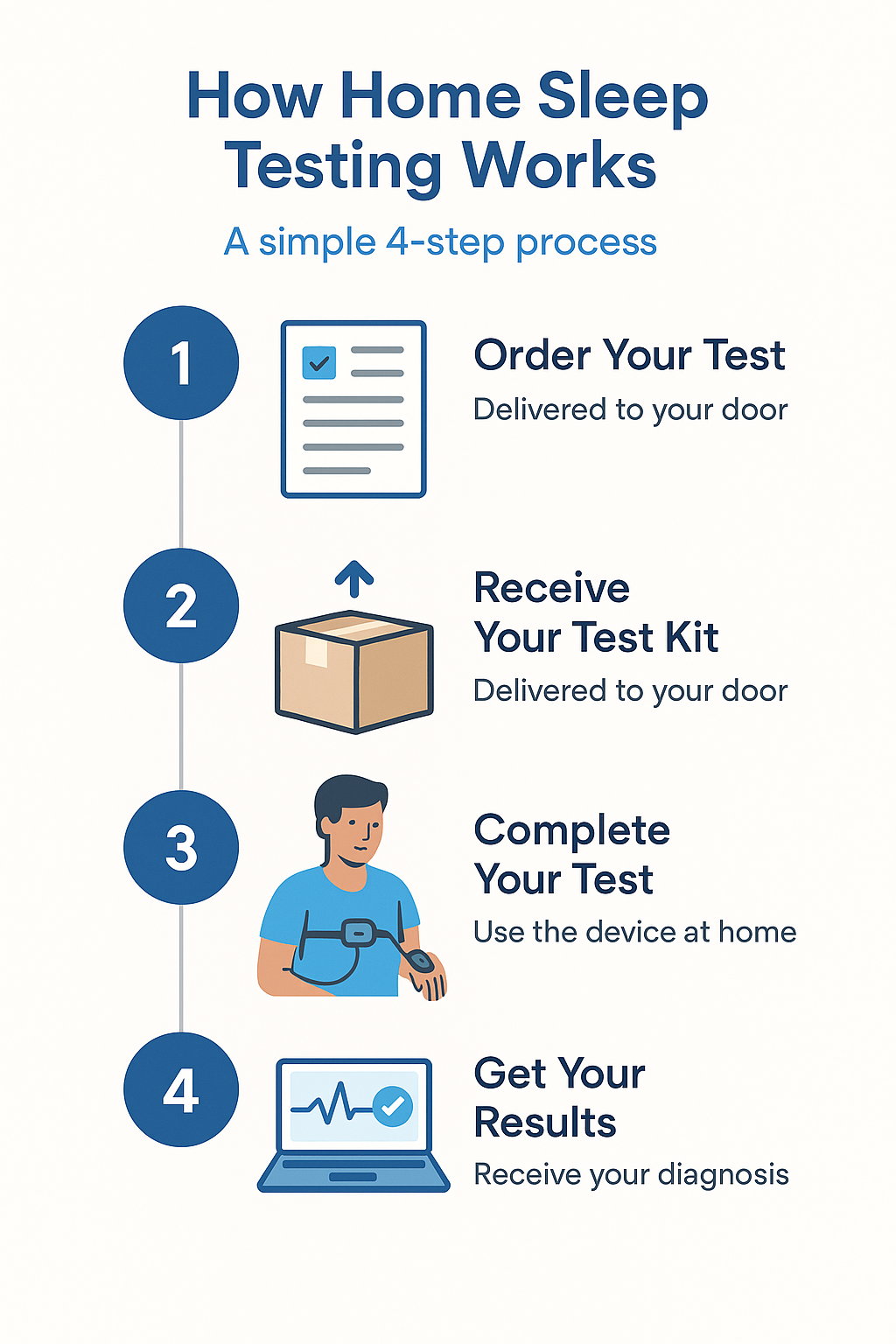Next Steps in Your Sleep Health Journey
If your sleep assessment indicates a potential sleep disorder, or if you're concerned about your sleep quality, SleepEz offers several pathways to diagnosis and treatment:
Home Sleep Testing
Our convenient home sleep test allows you to be evaluated for sleep apnea in the comfort of your own home. The test is easy to use and provides accurate results.
Learn MoreTelehealth Consultation
Connect with one of our board-certified sleep specialists via secure video consultation to discuss your symptoms and determine the best course of action.
Learn MoreTreatment Options
Based on your diagnosis, we offer a range of treatment options, including CPAP therapy, oral appliances, positional therapy, and lifestyle modifications.
Learn More